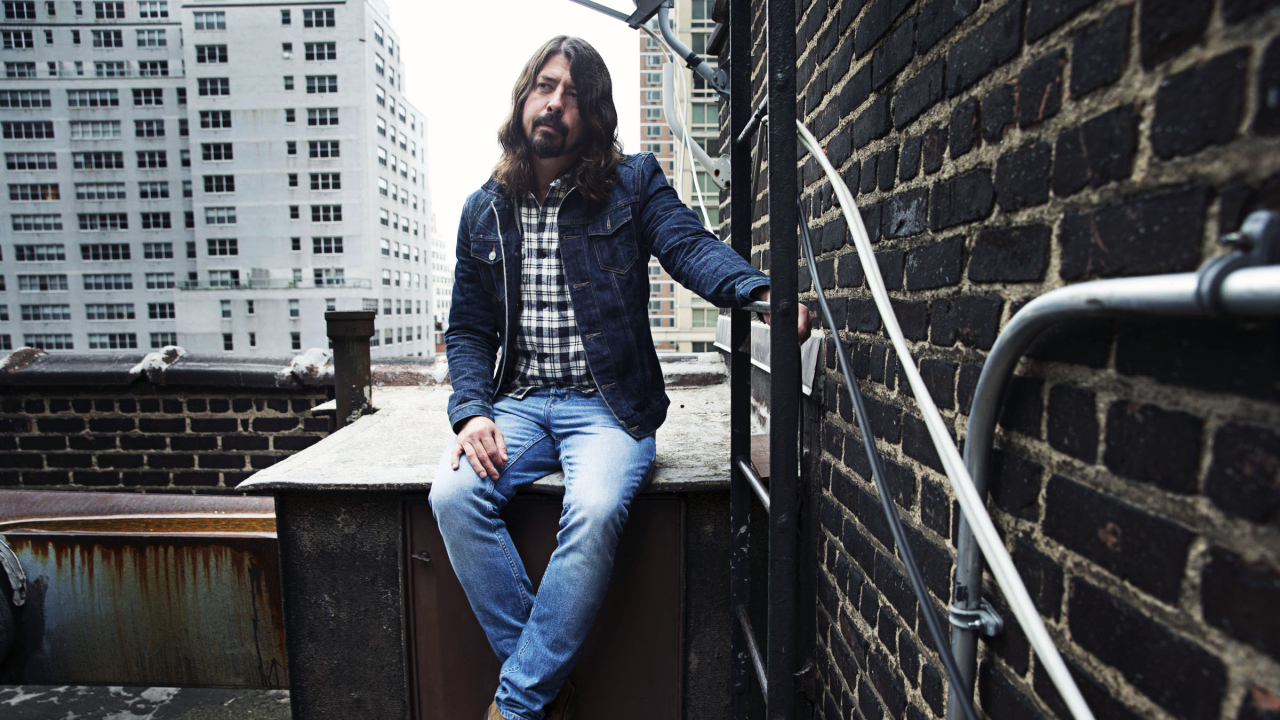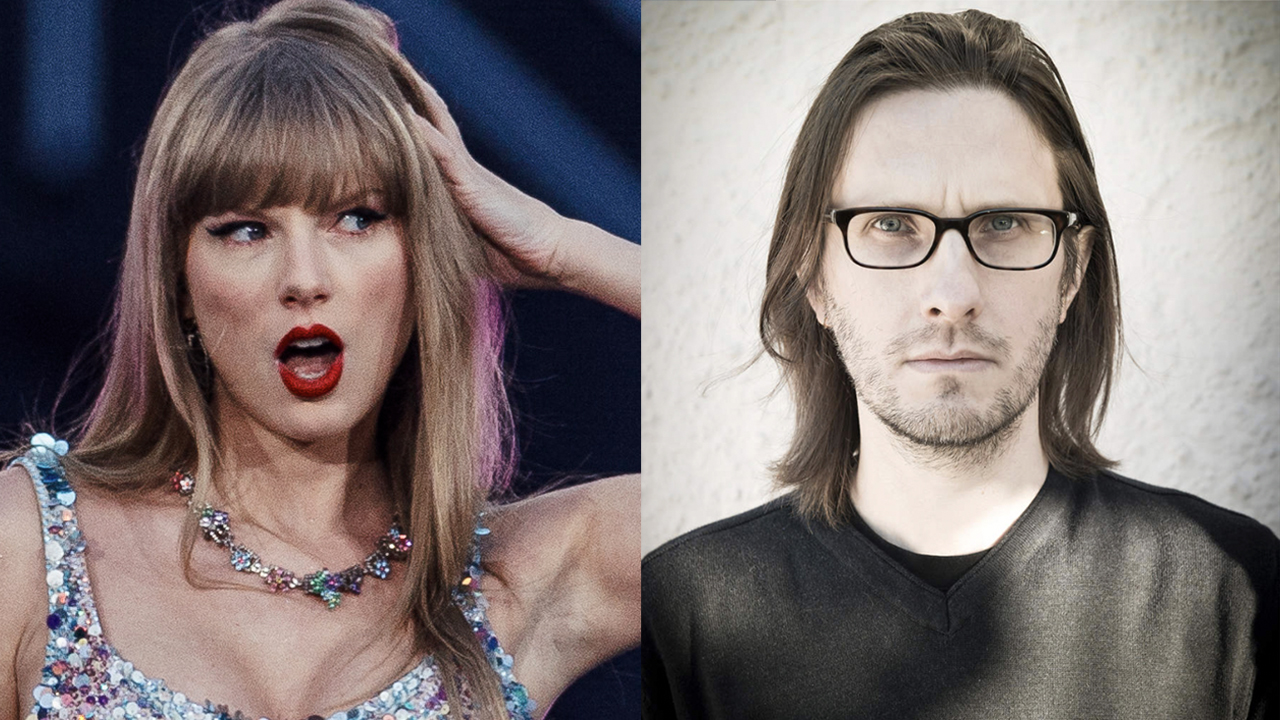Q&A: Dave Grohl
The Foo Fighters frontman on uncovering American music history, studios as “churches”, and meeting Obama

What do you do when you’ve got a colossal worldwide fan-base, strings of awards and a stellar reputation for crowd-pulling riffage? You build on all that by recording your most ambitious album yet. In the Foo Fighters’ case, one (their eighth) inspired by their new HBO series of the same name: Sonic Highways. Not one to rest on his laurels, Foos mainman Dave Grohl interviewed scores of musicians – and US president Barack Obama – for the aforementioned series, across eight American cities, documenting their musical stories, and recording a song for the new album at each stop.
Was it your Sound City documentary (released in 2013) that got you interested in the idea of different recording studios each having a particular sound?
Actually it started before that, with the last Foo Fighters record, which we made in my garage. And at that point I thought: “You know, maybe we should do a documentary about the band where we tell the story of the last fifteen or sixteen years, which would maybe explain why we’re making a record in my garage.” When I bought the [mixing] board from Sound City I thought: “I’ll just make a short film about this studio and this piece of equipment,” because its history is unbelievable. And to me, these recording studios are hallowed ground. They’re churches. They’re monuments to me. Some people just think they’re rooms with tubes and wires, but history has been made in these shitholes all over the country. So I was like: “We’ve got to tell this story because it will humanise the whole process.”
** You’ve recreated yourself time and time again as a musician. How long did you think it was going to last?**
When Nirvana first got popular, my father, who was a classically trained musician and writer, called me and said: “Hey, you know this isn’t going to last, right?”’ And I said: “No, of course… There’s no way this could ever last.” He’s like: “Treat every cheque that you get like it’s the last one you’ll ever fucking get.” It scared the hell out of me. That was twenty-four years ago. So I’ve always kind of waited for this to end so that I can get on with real life, you know [laughs] for the last twenty-four years. And eventually I just sort of realised: wow, well, I guess this is my real life…
To me, it’s all about recreating – or reinventing – the process. We could just go and make another record in a studio and hit the road and sell a bunch of T-shirts. But where’s the fun in that? We’ve been a band for twenty years now. Let’s go to tiny studios all over the country, tell the story of music from that city; there’s a reason why jazz came from New Orleans, there’s a reason why country went to Nashville. And I get to interview all of these people and talk to them about that… Man, nobody is cooler than Dolly Parton. Her story is amazing. She didn’t even have running water. She bought her family’s first TV from being on TV.
- Every song on Nirvana's Nevermind, ranked from worst to best
- 47 Things You Might Not Know About Dave Grohl
- 41 Dave Grohl guest spots ranked from worst to best
- Nirvana Quiz
So many reality shows about musicians home in on the disappointments of success. Musicians talk about the old days as if that’s when they had the most fun. Is that what you’re doing, bringing back that fun?
Sign up below to get the latest from Classic Rock, plus exclusive special offers, direct to your inbox!
I don’t know if it’s reminding people of that simple pleasure of just playing music, or if it’s explaining that. I don’t want my kid to think the only way you can be a musician is if you stand in line at a song contest audition and then wind up having a bazillionaire tell you you’re not a good singer. To me that’s not what music’s about. When I listen to my kid practice the violin or the flute it sounds like someone is strangling a fucking cat [laughs]. But she looks at me like: “Did you see what I just did?” She feels great. And I’m like: “Absolutely!” I think it’s important for people to realise that the simple pleasure of playing music is kind of the most important thing. But at the beginning of every day, I still wake up and I can’t wait to play. And it doesn’t matter for what or whom. I mean, shit, last night I played in a cover band at a dive bar down the street from my house just because I didn’t want to go to bed at ten o’clock.
Why did you want to talk to the President?
Because I wanted him to talk about America as a country, where you have the opportunity to start with nothing. Like Buddy Guy – make your guitar from strings and wires in your screen porch, and then become a blues legend that’s inducted into the Kennedy Center Honors. Or be a high-school dropout from Springfield, Virginia, that winds up in the Rock And Roll Hall Of Fame, or being a kid from Hawaii that winds up being the president.
Inevitably you’ve had to narrow down a huge country to just eight cities. Were there others you would have liked to have visited and done their stories?
Yeah, plenty. I mean, we could have gone to North Carolina and talked about bluegrass, or we could have gone to Miami or Boston… I started travelling when I was about eighteen. I left high school, I joined a band and I jumped in a van. And my per diem was seven dollars a day or whatever, and we slept on floors. But I got to go to each one of these cities, and each had a community of musicians that supported each other. They’re everywhere. It’s not just what you see here and online or whatever. You could go and tell the story of each of these cities, and there would be really important people and specific reasons why these things have happened.
For all the great things social media has brought about, has it made it more difficult to have individualistic music cities and studios putting out unique sounds?
I don’t know, man. I think the advantage of technology and the convenience of what we have now has drawn everyone closer to the source – whatever the source is. It’s what you do with it that answers that question. I mean, when I was a kid selling records out of a van on tour, I would have killed to be able to upload it and press a button and send it to someone in fucking Germany, you know? But it wasn’t an option. That was the romantic challenge of being a musician in the eighties [laughs].
